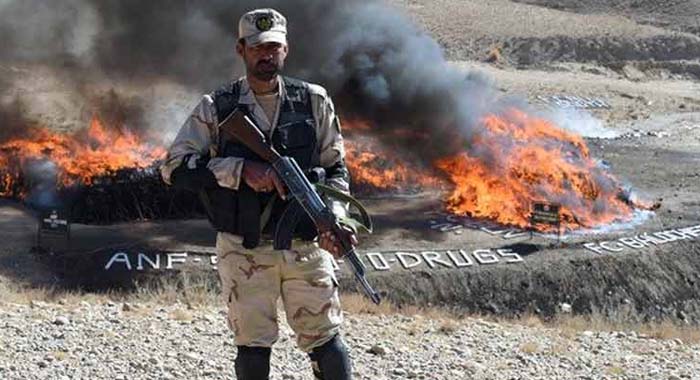Khyber is a district of stark contrasts bordered by Afghanistan on one side and the mysterious valleys of Tirah on the other. Those valleys weekly transform into open markets where raw hashish and other lethal narcotics are sold openly. These illicit bazaars are so active their echo can be heard across the area, yet, alarmingly, law-enforcement agencies appear absent. This raises urgent questions: who runs this trade and under whose protection does it operate?
United Nations reports estimate Afghanistan produces roughly 80 per cent of the world’s illicit opium and related narcotics. The country also harbours more than a dozen major terrorist organisations, including Al-Qaeda, ISIS, Tehrik-e-Taliban Pakistan (TTP) and groups like the Baloch Liberation Army (BLA), all proscribed at international levels. Disturbingly, Afghanistan exports both terrorism and narcotics, and Pakistan is a primary destination for both. Among the cross-border routes used for these illicit flows, the Tirah Valley figures prominently.
Entry points such as Satobi, Nazia Banda, Raggāl Kokī Khel and Spin Ghar Morgah are reportedly used to funnel poison into Pakistan. This problem is not the work of a few criminals; it appears to be an organised economy run by the collusion of criminal networks and political actors. It is not merely an illegal trade it is a toxin that is devouring the hopes and futures of Pakistan’s youth. The markets endure, yet for ordinary citizens, entering these areas is tantamount to risking their lives.
Recent reports claim that in a single year some 12,000 acres in Khyber were used to cultivate cannabis/hashish. Estimates put illegal earnings at roughly Rs2.5 million to Rs3.0 million per acre, and the benefits of this economy are said to reach as much as 75 per cent of the local population. Authorities warn that more than Rs800 crore (eight billion rupees) worth of narcotic crop could be on the market this year alone. The profits of this unlawful economy are reportedly shared among terrorists, smugglers and influential political figures.
Tirah functions as a gateway for hashish entering Pakistan, where local produce is mixed with Afghan consignments and distributed through a nationwide supply chain. The consequence of this open trafficking is a national addiction crisis: Pakistan is estimated to have roughly 17 million people struggling with substance abuse. Recent aerial imagery of Tirah purportedly shows vast quantities of hashish laid out to dry — a visual testament to the scale of the problem and the volumes likely to reach market in the near term.
A widespread extortion network operating under the name of “ushr” (tax/levy) is also active in Tirah. Extremist groups collect millions of rupees under the pretext of providing “security”; a portion of this money reportedly reaches terrorist commanders in Kandahar and Kabul, indicating that the drug economy is financing transnational terrorism.
The Bara “Karkhano Bazar” is widely regarded as the largest hub for smuggled goods in Pakistan. Textiles, electronics,le, weapons and hashish originating in Afghanistan are openly available and the illicit proceeds are diverted to terror groups. These organisations often portray security operations against them as “collateral damage” to attract international sympathy under the banner of human rights. When Pakistan’s armed forces and other agencies act, some domestic and foreign voices oppose those operations. The critical question is why such opposition arises: is it coincidence or a clash of vested interests?
Security forces report having conducted 514 operations in Tirah and adjoining areas to date, resulting in the death of 70 militants. Those operations have also cost the lives of 49 people, including personnel from the Pakistan Army, Frontier Corps, the police and civilians. The high number of casualties underscores that militant networks enjoy local-level collusion and facilitators who incite the public against state institutions while sheltering militants and enabling their illicit enterprises.
When narcotics, hashish and black money become entwined with political influence and financing for terrorism, security agencies are left with no option but to act decisively. This trade must be dismantled. As a nation we face a choice: accept this reality and allow terrorism to endure, or act now to end the cycle. If we fail to act, the poison will not only remain in the soil but will embed itself in our future generations.
This is not only a battle against a drug; it is a fight for the nation’s conscience. The public must decide whether to surrender its children’s futures to traffickers and terrorists or to rise and reclaim safety and hope. Now is the time for a united, multi-layered response at every level social, political and security to eradicate a scourge that threatens Pakistan’s very survival.





